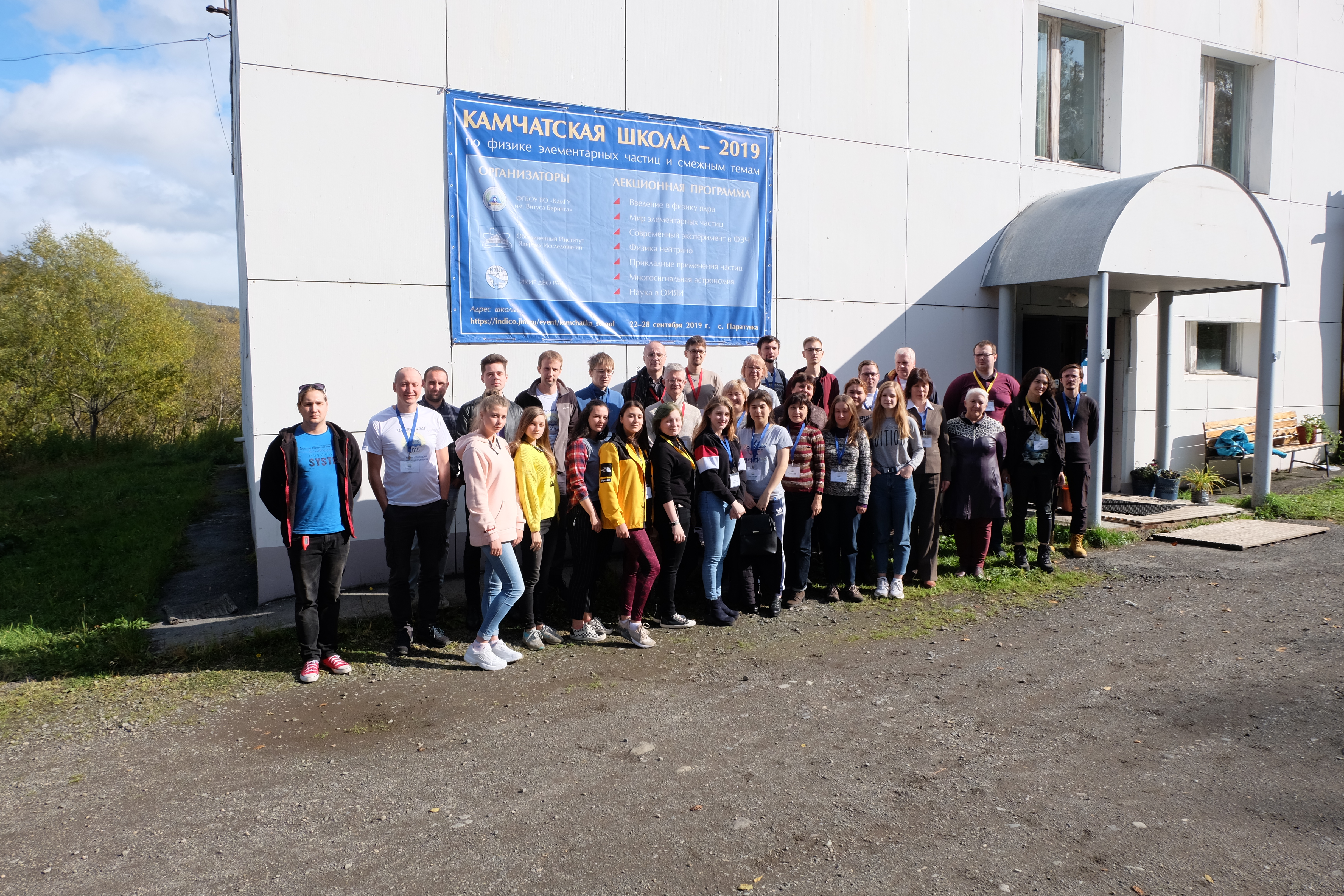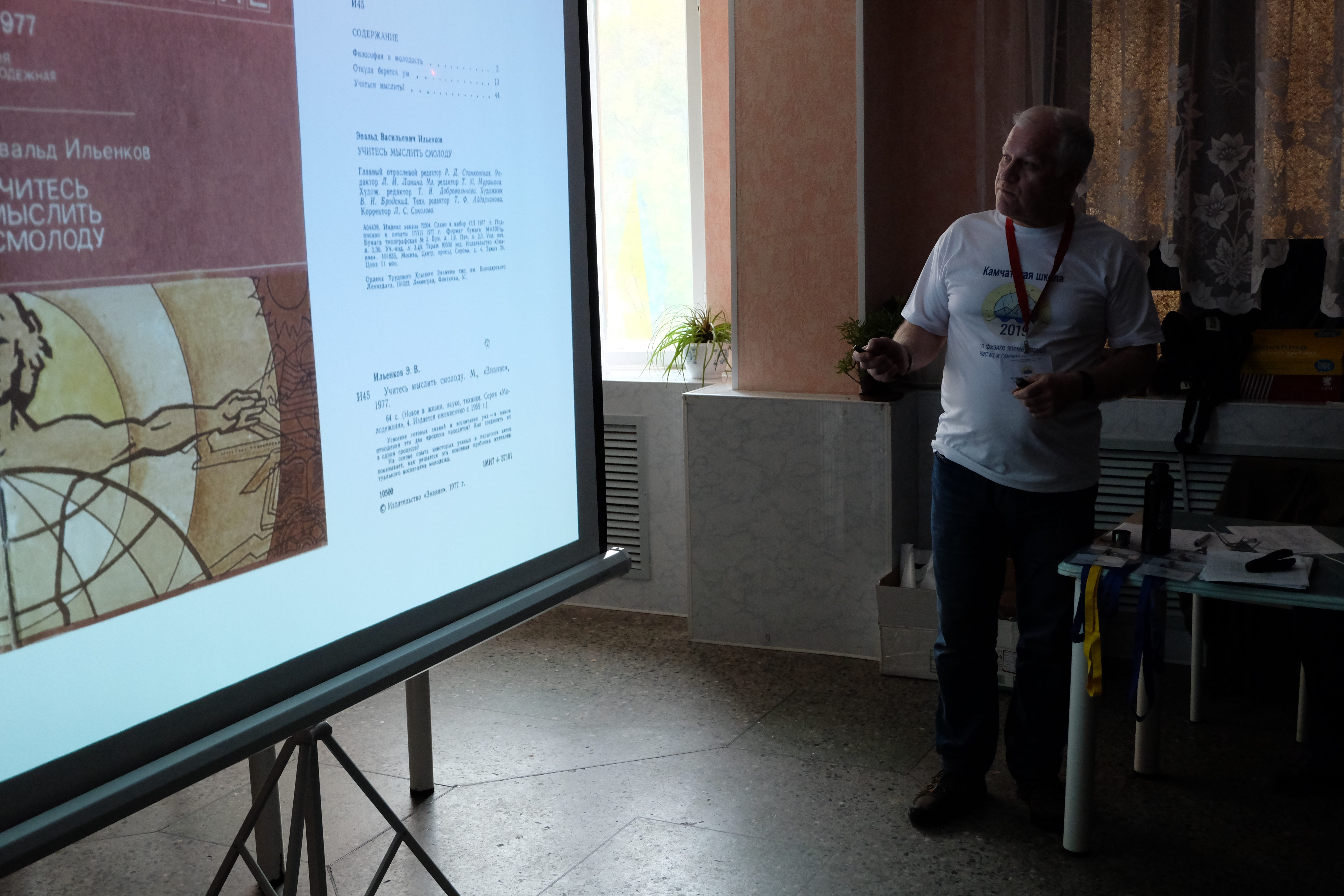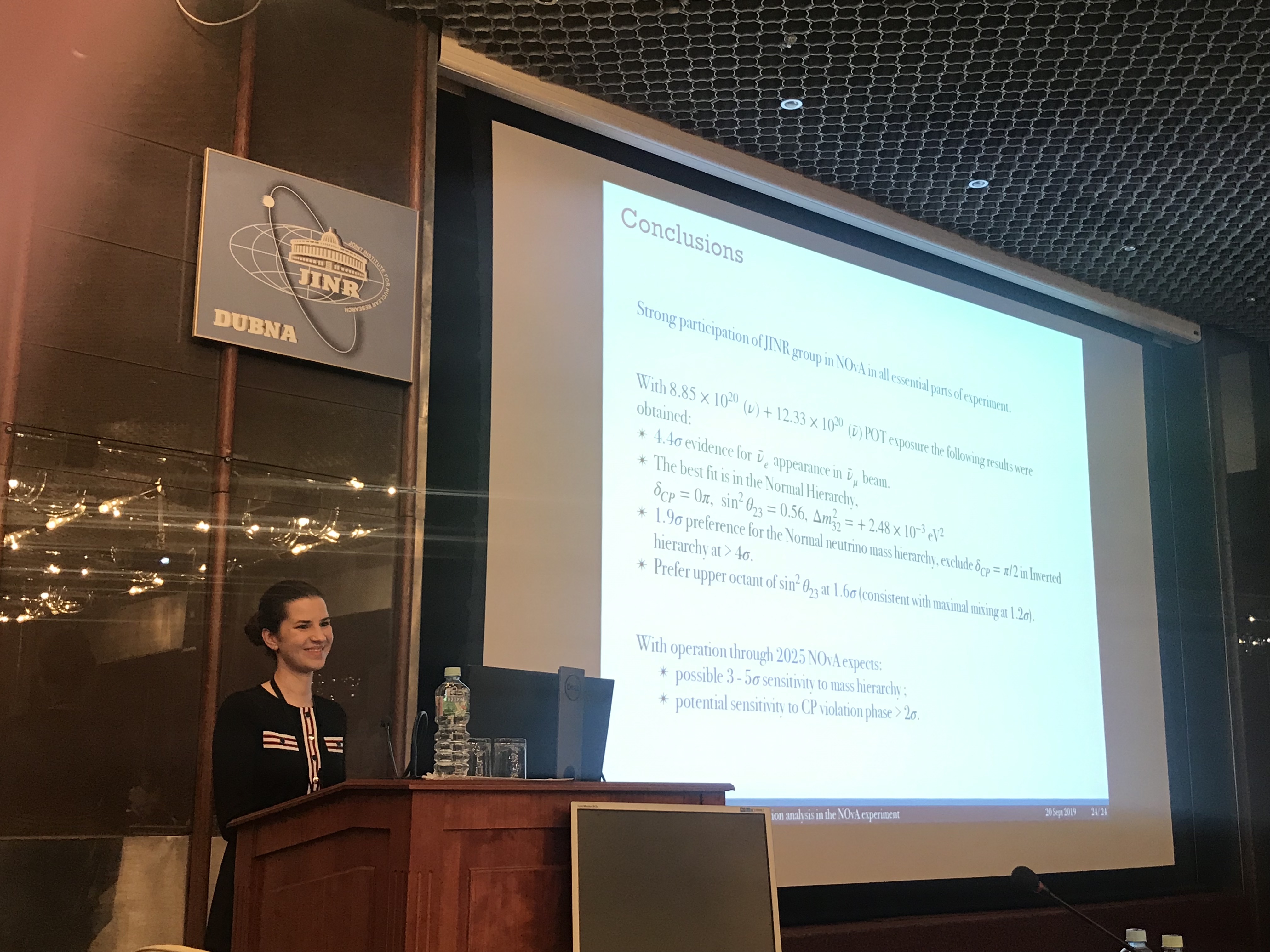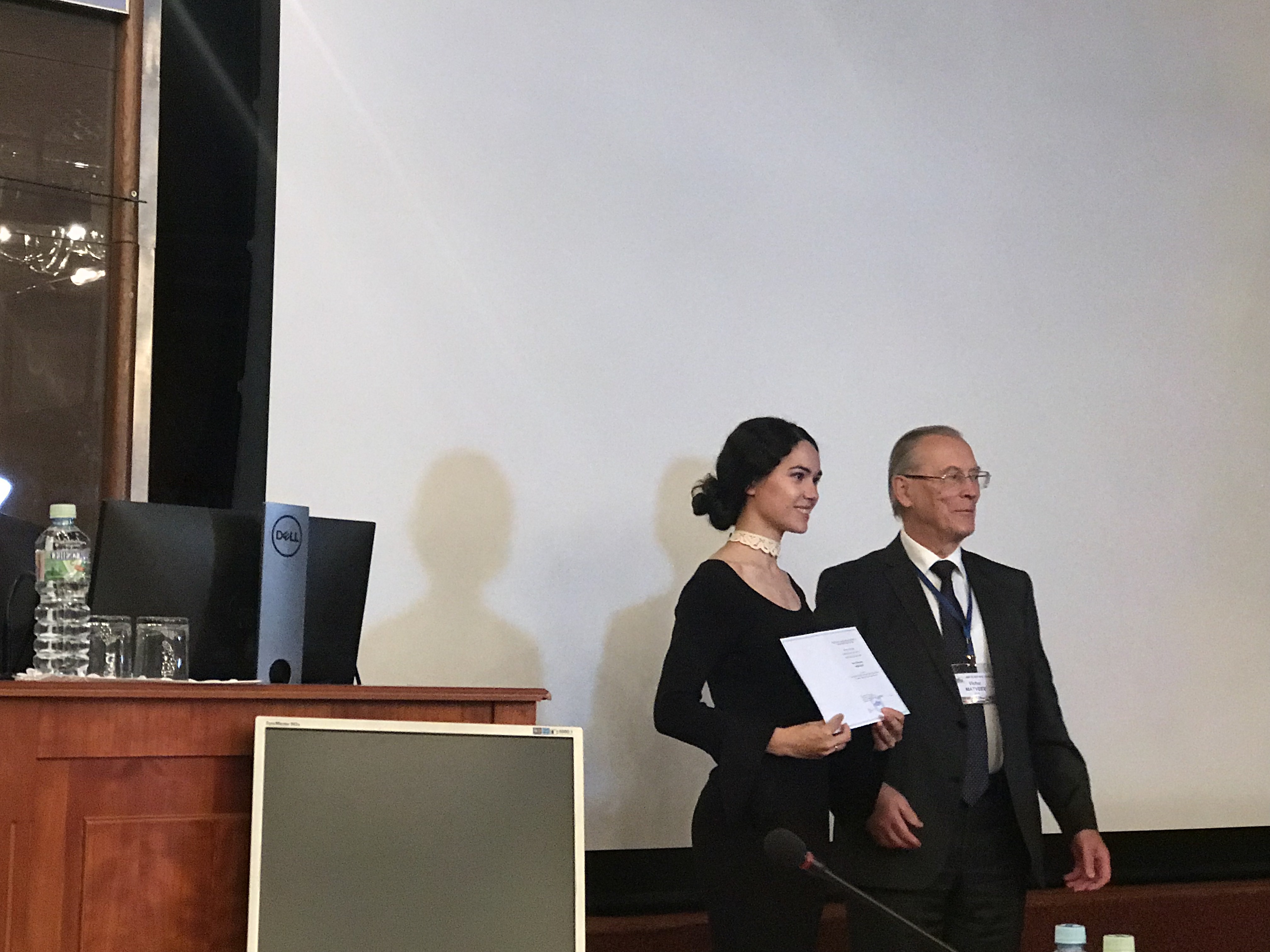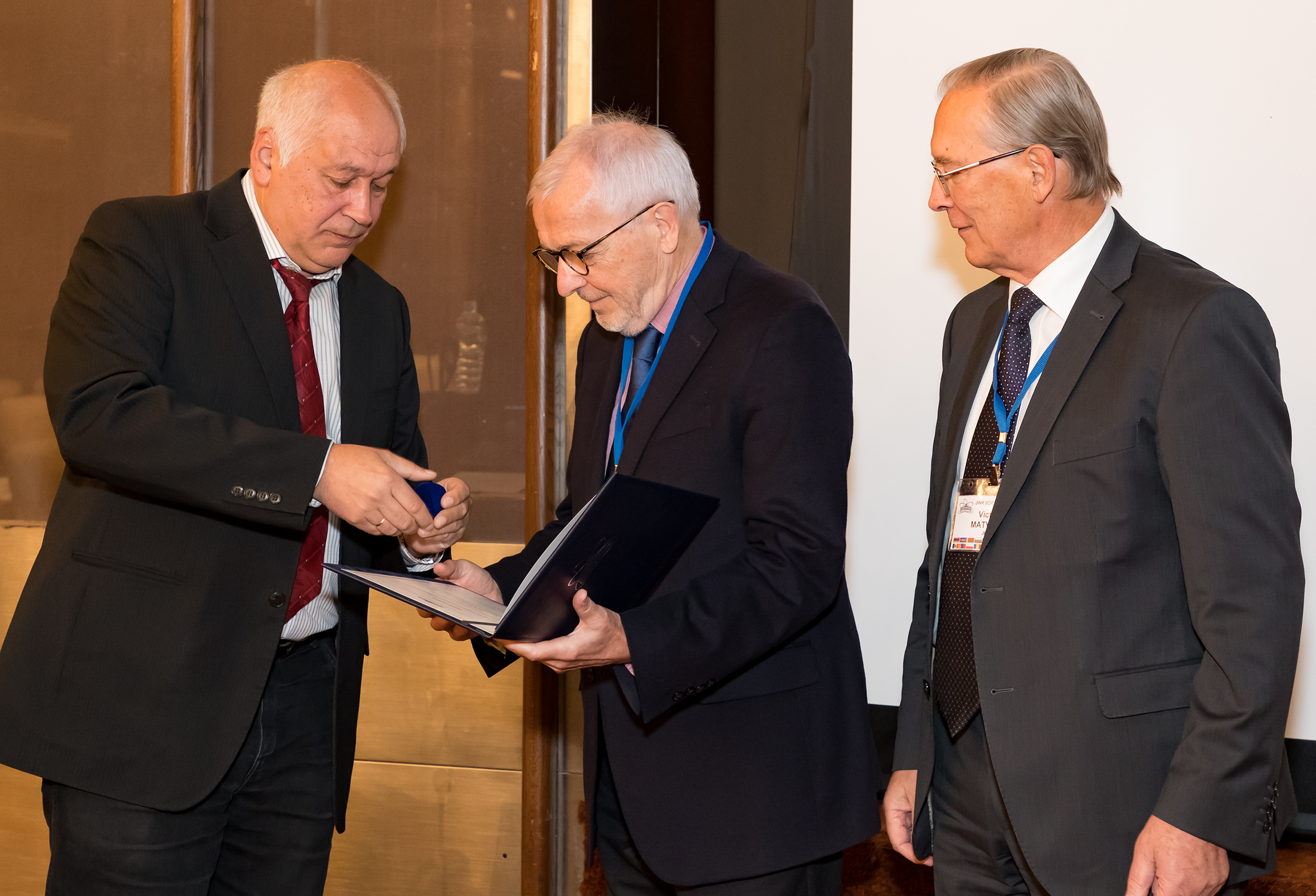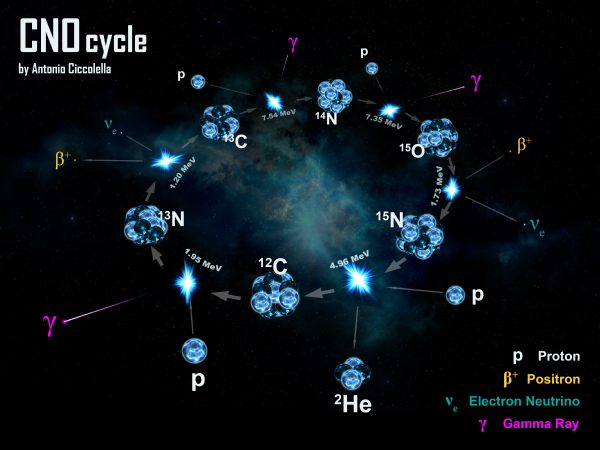News
01.10.2019
The Lab’s Seminar 01.10.2019 by Mikhail Nikolayevich Omelyanenko “Magnetic Technology Applications in Biology” was devoted both to the 50th anniversary of the beginning of projects on magnetobiology at DLNP JINR and to the 95th date of birth of Dr. in Ph. and Math. Sc. V.I. Danilov.
26.09.2019
Nikolay Anfimov and Aleksandr Selyunin had brought two entire test stands for laboratory session in dosimetry and gamma spectrometry. The School listeners were familiarized with real equipment used in nuclear physics: a photomultiplier tube, a scintillation counter, an A/D converter with time sampling, as well as a software for data collection and data processing based on the Data Analysis Framework ROOT. Within this session, the School participants measured the Potassium-40 spectrum of potash fertilizer, the Thorium-232 spectrum of welding rods WT-20 containing Thorium alloy; defined the radiation dose that everyone gets from the natural background and that correlates perfectly with the results of household dosimeter based on Geiger counter.
25.09.2019
In spite of high wind, rain and continuous jet lag, the tough School participants moved slowly one after another in the early morning to “Khutorok”. This is the name of the public building containing Medical Bath #2. A Conference Hall located on the first floor of this building hosts all the School events and indoor activities. During the break, you can go out onto the balcony with a cup of coffee and look down at people swimming in the pool, which is filled with thermal water, and foretaste the same pleasure after dinner. However, “otium post negotium”, and that is why “lectures first”.
The final part of the series of lectures on up-to-date experiment in particle physics delivered by Igor Boyko opened the day.
24.09.2019
School timetable was altered due to sudden changes of the weather. The sightseeing trip to Petropavlovsk-Kamchatsky and its outskirts scheduled for the afternoon was delayed until next morning. And this time, the weather did not let us down: it was a lovely and sunny morning. Our spirits were bright, and the scenery around proved to be spectacular. The photographs express more than words.
The second part of the day ran according to the plan: Igor Ivanov continued his lecture on particle physics; Igor Boyko talked about the up-to-date experiment; and finally, Stepan Shimansky (VBLHEP, JINR) joined in with his lecture on nuclear physics. Intense discussions did not stop even during the breaks.
23.09.2019
Congratulations to Lyudmila Kolupayeva on the successful report presentation at the 126th session of the JINR Scientific Council as the winner of the Poster Session for Young Scientists on Particle Physics Research within the 51st meeting of the JINR Programme Advisory Committee! We wish Lyudmila further victories and a great scientific achievement!
23.09.2019
The 126th session of the JINR Scientific Council was held from 19 to 20 September 2019. The programme of the Session included the presentation of JINR annual Award. Our congratulations to the group of the Borexino experiment on the First Prize of JINR Award 2018 in the section “Scientific and research experimental works” for the series of three papers: “Search of neutrino properties in pp-reactions in the Sun with the Borexino detector”! Oleg Smirnov, Alina Vishnyeva and Albert Sotnikov were awarded this Prize. We wish them new impressive scientific discoveries and a great delight from obtained results!
23.09.2019
Within the 126th session of the JINR Scientific Council, which took place in Dubna from 19 to 20 September 2019, Professor Francis Halzen (University of Wisconsin, Madison, USA) was awarded the Bruno Pontecorvo Prize 2018 for significant contribution to the IceCube detector construction and experimental discovery of high-energy astrophysical neutrinos.Francis Halzen is a researcher in the fields of particle physics, astrophysics and cosmology. He works at the University of Wisconsin in Madison. He is the head of the IceCube project.
The Bruno Pontecorvo Prize is an international award being annually presented by the JINR Scientific Council for achievements in elementary particle physics.
19.09.2019
The 27th annual European School on High-Energy Physics (ESHEP2019) was given from 4 to 17 September 2019 in St. Petersburg. These Schools are systematically arranged in one of the Member States of two major international scientific centres: the European Organization for Nuclear Research (CERN, Geneva) and the Joint Institute for Nuclear Research (JINR, Dubna).This series of schools, famous as CERN-JINR schools, traditionally attract much attention of the youth thanks to a sophisticated scientific programme, well-developed format, and a careful choice of lecturers and leaders of discussions.About 100 listeners from more than 30 countries participated in the School. Most of them are post-graduate students who finish their dissertations, possess a high scientific potential, and take part in recent research.Leading scientists – world specialists in the main fields of modern high energy physics deliver their lectures and conduct discussions. In particular, a lecture on the Standard Model was given by A.V. Bednyakov, on cosmology – by V.A. Rubakov, on heavy quark physics – by M.I. Vysotskiy; A.V. Gladyshev, D.G. Levkov and E.Ya. Nugayev led discussions.CERN Director-General Prof. Fabiola Gianotti and JINR Director, RAS Academician Victor Matveev presented traditional lectures on scientific programmes and prospects for research in the fields of high energy and particle physics.
In the frames of the School, a meeting with the participation of the public took place. The event started with a lecture by CERN Director-General Fabiola Gianotti, and continued with a question-and-answer session and a round-table discussion about the role of fundamental science in the development of the modern society. The JINR Director, RAS Academician V. A. Matveev, Deputy Academician Secretary and Head of the RAS Department of Physical Sciences Academician V. A. Rubakov, First Deputy Minister of Science and Higher Education, RAS Academician G. V. Trubnikov, SPbSTU Deputy Rector of Science Professor S.V. Mikuschev attended this meeting, as well as listeners of the School, researches and students from the institutions of higher education of St. Petersburg, and senior year students.
Thus, the whole series of European Schools of High-Energy Physics organized by CERN and JINR continues to fulfil its scientific and cultural mission at a high level constantly enhancing the programme and formats of interaction with the audience and the public.
19.09.2019
Most results of neutrino oscillation experiments can be successfully described by the three-component neutrino theory (PMNS matrix). However, observed anomalies (reactor and Gallium neutrino anomaly, inconsistent results at the LSND and MiniBooNE experiments) can be also explained by the existence of a sterile neutrino. This fourth type of neutrino does not interact in a standard way (hence the use of the term “sterile”), but mixes (oscillates) with the others. Expected range of the mixing phase space Dm2 ~ 2 eV2, sin2(2q) ~ 0.1 was determined by global analysis of available experimental data with the best value in the region Dm2 ~ 2 eV2, sin2(2q) ~ 0.1. The possible existence of a new fundamental physics triggered experimental tests in different research directions to check the hypothesis.
The current status of major short-baseline reactor experiments, such as DANSS, PROSPECT, STEREO etc. will be reported at this seminar. Various compact neutrino detectors (mass ~ 1-5 tonnes) located next to different reactors (5-25 m away) are operating in these projects. Today, a lot of experiments are accumulating their data and publishing new results, which will be discussed at the seminar.
13.09.2019
The review of experimental neutrino geophysics by the DLNP senior researcher Oleg Smirnov is accepted for publication by “Progress in Particle and Nuclear Physics”. Electronic version is available online under the following link: https://doi.org/10.1016/j.ppnp.2019.103712.
Experimental aspects of the geoneutrino detection are discussed in the review, including detailed analysis of the current methodology of antineutrino detection in the reaction of inverse beta-decay on the free proton (IBD); detailed discussion of possible background contributions in the observed IBD signal and the methods of their suppression. Status and perspectives of antineutrino detection methods are presented, including those aimed at the detection of potassium-40 contribution that was not previously observed because of high threshold of the IBD reaction. The possibility to use the direction of geoneutrino response to extract the mantle data is considered.
13.09.2019
Today, three officials from Italy’s National Institute for Nuclear Physics (INFN) will face trial for overlooking environmental safety regulations at the National Laboratory Gran Sasso. The matter was recently reported by Nature (https://www.nature.com/articles/d41586-019-01552-5).
Prosecutors in nearby Teramo have charged the INFN president Fernando Ferroni, the director of Gran Sasso Laboratory Stefano Ragazzi and the head of the lab’s environmental services Raffaele Adinolfi Falcone with the incorrect functioning of the lab’s environmental safety systems. If found guilty, they will face fines and sentences of up to four years in prison.
02.09.2019
On 1 September 2019 JINR instituted and launched the Dissertation Councils authorized to independently confer academic degrees.



